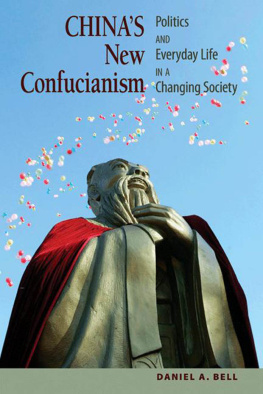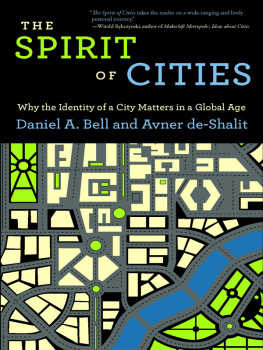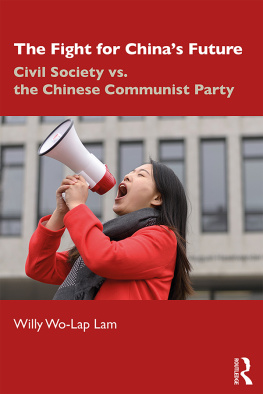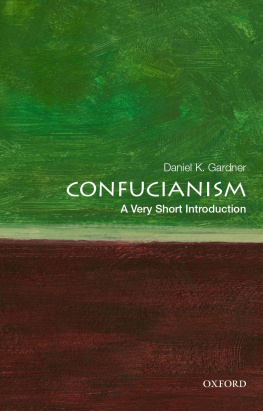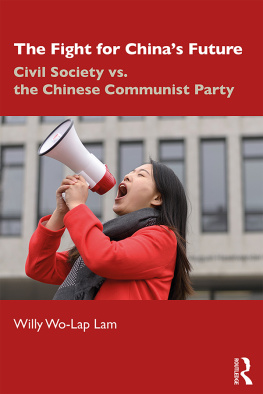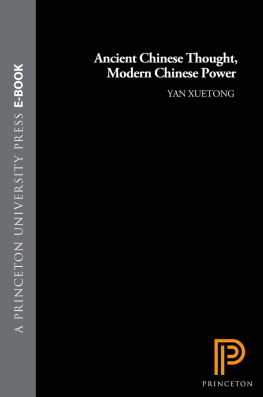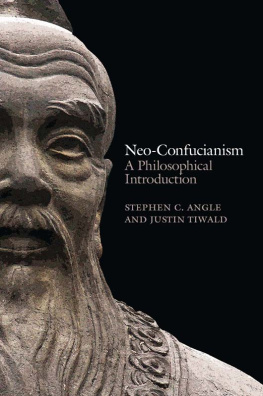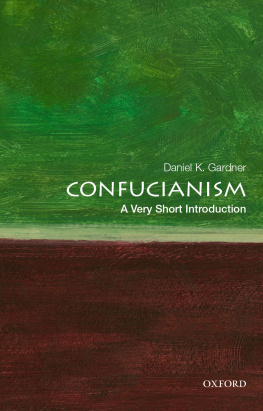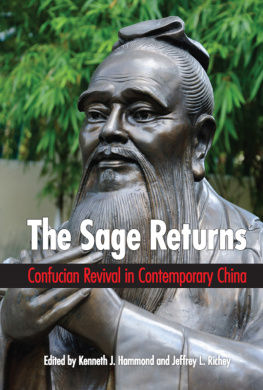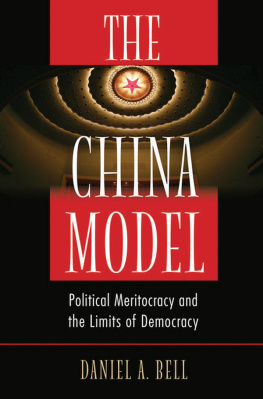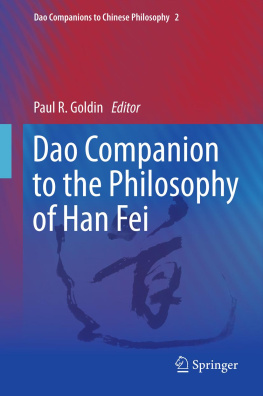Chinas New Confucianism
Chinas New Confucianism
Politics and Everyday Life in a Changing Society
With a new preface by the author
Daniel A. Bell
Copyright 2008 by Princeton University Press
Published by Princeton University Press, 41 William Street, Princeton,
New Jersey 08540
In the United Kingdom: Princeton University Press, 6 Oxford Street,
Woodstock, Oxfordshire OX20 1TW
press.princeton.edu
All Rights Reserved
Fourth printing, and first paperback printing, with a new preface, 2010
Paperback ISBN: 978-0-691-14585-3
THE LIBRARY OF CONGRESS HAS CATALOGED THE CLOTH EDITION
OF THIS BOOK AS FOLLOWS
Bell, Daniel (Daniel A.), 1964
Chinas new confucianism : politics and everyday life in a changing society /
Daniel A. Bell.
p. cm.
Includes index.
ISBN 978-0-691-13690-5 (hardcover : alk. paper)
1. ChinaPolitics and government20022. ChinaSocial conditions2000
3. ConfucianismChina. I. Title.
JQ1510.B45 2008
306.20951dc22 2008000733
British Library Cataloging-in-Publication Data is available
This book has been composed in Electra LT Std
Printed on acid-free paper.
Printed in the United States of America
5 7 9 10 8 6 4
For my mother and Anthony
Contents
1. From Communism to Confucianism:
Changing Discourses on Chinas Political Future
4. Sex, Singing, and Civility:
The Costs and Benefits of the Karaoke Trade
5. How Should Employers Treat
Domestic Workers?
6. The Politics of Sports:
From the 2006 World Cup to the 2008 Olympics
9. On Being Confucian:
Why Confucians Neednt Be Old, Serious,
and Conservative
Preface to the Paperback
Edition: Toward a Progressive
and Humane Confucian Ethics?
Since the publication of the hardcover of Chinas New Confucianism in 2008, the revival of Confucianism in China has only intensified. But what exactly explains this phenomenon and what makes it so controversial? And what are the challenges of promoting Confucianism in China and the West?
Why the Revival of Confucianism?
Communism has lost its capacity to inspire the Chinese. But what is replacing it? And what should replace it? Clearly there is a need for a new moral foundation for political rule in China, and the Chinese government has moved closer to an official embrace of Confucianism. The 2008 Summer Olympics highlighted Confucian themes, quoting the Analects of Confucius at the opening ceremony and in booklets handed out to visiting journalists, and downplayed any references to Chinas experiment with Communism. Cadres at the newly built Communist Party School in Shanghai proudly tell visitors that the main building is modeled on a Confucian scholars desk, with the tower representing the power of the word. Abroad, the government has been promoting Confucianism via branches of the Confucius Institute, a Chinese language and culture center similar to Frances Alliance Franaise and Germanys Goethe Institute.
Of course there is resistance as well. Elderly cadres, still influenced by Maoist antipathy to tradition, often condemn any efforts to promote ideologies outside a rigid Marxist framework. But the younger cadres in their forties and fifties tend to support such efforts, and time is on their side. Its easy to forget that the 76-million-strong Chinese Communist Party is a large and diverse organization. The party itself is becoming more meritocraticit now selects high-performing students and encourages them to joinand the increased emphasis on the selection of educated cadres is likely to translate into more sympathy for Confucian values.
But the revival of Confucianism is not just government-sponsored. There has also been a resurgence in interest among academics in China. Rigorous experiments by psychologists show that there are striking cognitive differences between Chinese and Americans, with Chinese more likely to use contextual and dialectical approaches to solving problems. Economists take the family as the relevant unit of economic analysis and try to measure the economic effect of such Confucian values as filial piety. Feminist theorists draw parallels between care ethics and the Confucian emphasis on empathy, particularity, and the family as a school of moral education. Theorists of medical ethics discuss the importance of family-based decision-making in medical settings. Those working in the field of business ethics research the influence of Confucian values on business practices in China. Surveys by political scientists show that attachment to Confucian values has increased during the same period that China has modernized. Sociologists study the thousands of experiments in education and social living in China that are inspired by Confucian values.
The renewed academic interest is also driven by normative concerns: an increasing number of critical intellectuals are turning to Confucianism for ways of dealing with Chinas current social and political predicament. Without entirely rejecting Westernization, they believe that stable and legitimate political arrangements need to be founded, at least partly, on political ideals from their own traditions. Theorists of international relations look to early Confucian thinkers for foreign-policy insights. Legal theorists search for less-adversarial modes of conflict resolution grounded in traditional practices. Philosophers draw upon the ideas of great Confucian thinkers of the past for thinking about social and political reform in China. And Confucian educators work on long-term moral transformation by teaching the Confucian classics to young children.
Of course, such political and academic developments are supported by economic factors. China is a rising economic power, and with economic might comes cultural pride. The Weberian view that Confucianism is not conducive to economic development has come to be widely questioned in view of the economic success of East Asian countries with a Confucian heritage. Unlike with Islam, Hinduism, and Buddhism, there has never been an organized Confucian resistance to economic modernization, and such values as respect for education and concern for future generations may have contributed to economic growth. And now, poised to become a global power, its Chinas turn to affirm its cultural heritage.
But modernity also has a downside: it often leads to a kind of atomism and psychological anxiety. The competition for social status and material resources becomes fiercer and fiercer, with declining social responsibility and other-regarding outlooks. Communitarian ways of life and civility break down. Even those who make it to the top ask what now? Making money, people realize, doesnt necessarily lead to well-being. It is only a means to the good life, but what exactly is the good lifeis it just about fighting for ones interests? Most peoplein China, at leastdo not want to be viewed as individualistic. The idea of simply focusing on individual well-being seems too self-centered. To really feel good about ourselves, we also need to be good to others. Heres where Confucianism comes in: the tradition is based on the assumption that the good life lies in social relationships. To be fully human involves an ethic of social responsibility and political commitment. In China, Confucian ethics is the obvious resource to help fill the moral vacuum that so often accompanies modernization.

